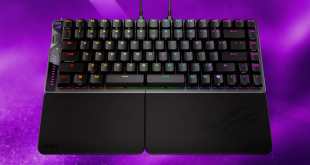Since Samsung Electronics is the largest maker of smartphones based on the Android operating system, it is a strategically important partner of Google. Since the search giant pins a lot of hopes on Samsung, it is naturally very frustrated that the South Korean company invests into Tizen operating system in general and develops wearable gadgets featuring the platform in particular.
Last week during a meeting at the Allen & Co. conference in Sun Valley, Larry Page, chief executive officer of Google, told Jay Y. Lee, the vice chairman of Samsung, that he was frustrated because the consumer electronics maker was investing more in smartwatches running the open-source Tizen operating system than in smartwatches running Google’s Android Wear operating system, reports The Information web-site. The vice chairman reportedly said that Tizen operating system was an important part of the company’s future.
It will be interesting to see how Google will persuade Samsung to boost investments in smart devices based on the Android Wear platform. The success of the platform depends on its support by hardware makers, such as Samsung. Given the fact that Samsung is very important partner of Google, it is obvious that the latter is very interested in Samsung’s support of the Android Wear.
Google and Samsung did not comment on the news-story.
Discuss on our Facebook page, HERE.
KitGuru Says: For Samsung it is important not to depend on Google too significantly. Therefore, the company will continue to invest in its own software as this allows it to differentiate from other adopters of Android. However, the competition between Android Wear and Tizen will inevitably slowdown adoption of wearable computing devices in general…
 KitGuru KitGuru.net – Tech News | Hardware News | Hardware Reviews | IOS | Mobile | Gaming | Graphics Cards
KitGuru KitGuru.net – Tech News | Hardware News | Hardware Reviews | IOS | Mobile | Gaming | Graphics Cards




Switching OS’s, while being a sign of change, doesn’t change that their biggest problem was being self-restricted.
It’s an expensive accessory instead of a product that can stand on its own; hopefully that changes with the “open nature” of Tizen.